Well, I wasn't exactly sure I would attempt to tackle this.
While it is easier to focus on films, the idea of comparing 94 different acting portrayals seems a lot more daunting. I did decide to challenge myself with this, especially since my rankings of the 94 films to win Best Picture was rather successful.
So, here we are.
I will be ranking all of the 94 winners of the Academy Award (Oscar) for Best Actress, which is normally the one acting category that gets the most passionate attention and debate.
Just like I did with the Best Picture ranking, I will split these up into 5 volumes:
94-80
79-60
59-40
39-21
20-1
To clarify, I am ranking these strictly based on how the performances compare with the other winning performances. I may reference better performances that I would've preferred to the winner, but that is more just to state my personal opinion and isn't exactly a tipping point in why that particular winner was placed in a certain position.
______________________________________
#94 - Mary Pickford, Coquette (1929)
Let us begin the ranking with the second performance to win this award.
Or maybe I should say "win" the award.
With the concept of Oscar campaigning becoming a far more exhaustive and despicable affair in the last 30 years thanks to the framework created by the likes of Harvey Weinstein/Miramax, the truth is that the early years of the Oscars were just as heinous with the practice.
In the late 20s up through the 50s, a lot of the Academy choices were influenced strongly by the movie studios throughout Hollywood and the industry as a whole.
Mary Pickford had been one of the biggest and most recognizable stars throughout the Silent Film era and she, along with her husband Douglas Fairbanks, were among the 36 founders of the Motion Picture Academy which would become The Academy of Motion Picture Arts & Sciences. In case it hasn't hit you yet, this is the organization that would put together the ceremony that would go on to be the Academy Awards.
Pickford and Fairbanks were arguably the biggest and most influential Hollywood couple of that era and when Pickford's career was starting to decline with the talkies, she hoped to reinvent herself as a more serious actress who could succeed beyond Silent films. She cut her famous curly hair in favor of a 20s flapper bob and took a part in Coquette, in which she plays a southern belle who takes in an interest in a blue-collar worker.
The film was a box office success and at the time, it was received relatively warmly by critics.
The truth is the film definitely a product of its time: very short but it feels a lot longer, poorly staged direction, and performances that feel either very wooden or too melodramatic.
Pickford, whose talents were not up to par compared to her contemporaries such as Greta Garbo or Norma Shearer, comes off as shrill and lacks any real sense of confidence.
As much as it has been said that the award was won out of merit, I don't believe it for a second. Pickford lobbied very hard for it and even invited all of the members of the Academy to her famed mansion, Pickfair, for a luncheon.
Campaigning was born and it gave us a win for a truly horrid performance.
Of the nominees, I would've given the win to the posthumous nominee: Jeanne Eagles for The Letter.
_________________________________
#93 - Sandra Bullock, The Blind Side (2010)
While Pickford may have been the first avid campaigner, Sandra Bullock is part of another truly horrible example: the narrative winner.
Bullock even said when she won "Did I earn this, or did I just wear you all down?"
I can recall when The Blind Side came out that there was a surprising amount of awards buzz and it seemed that most of the film forum community was baffled by this, especially when other performances from even better films were so obviously superior to Bullock's work.
This isn't to say Bullock was bad necessarily, but it just wasn't anything remarkable. It also goes without saying...though screw it, I will say it anyway, that The Blind Side is a horrendous movie that is the perfect example of "The White Savior film". This may have been based on a true story, but a lot of the story was changed for the film to shine more of a heroic light onto the white family and less onto Michael Orr, the young black man who was the catalyst to the story.
I simply think The Blind Side is an offensive film that is so treacly and manipulative in its approach and within the confines of the film, I simply don't think Bullock can overcome that.
Not surprisingly, I think Bullock was surpassed by the other four nominees though my favorite was easily Carey Mulligan in An Education.
However, my favorite acting performance by an actress that year was from Kim Hye-ja, who starred in Bong Joon-ho's Mother (no relation to the Aronofsky film). She won the LA Film Critics Circle Award so she was certainly in the discussion but...of course...no such luck with the more mainstream awards circuit.
__________________________________
#92 - Elizabeth Taylor, Butterfield 8 (1960)
You sure did, Shirley MacLaine!
You sure as hell did!
No one else would agree with such a placement than Elizabeth Taylor herself, who viewed this film and her performance as trash or, as she herself had said in interviews "a piece of shit".
Butterfield 8 truly is pulpy trash, and it is remarkable that Taylor even got nominated for it.
However, there was yet another narrative here: one based on health and forgiveness.
Taylor had been under a lot of fire for basically stealing Eddie Fisher from his wife, Debbie Reynolds and as the fire kept coming, she came very close to succumbing from a severe bout of Pneumonia which led to her getting an emergency tracheotomy.
This narrative cost Shirley MacLaine what would've been one of the most deserving wins in history for her performance as Fran Kubelik in Billy Wilder's perfect Romantic Dramedy, The Apartment.
Taylor was a great actress as evidenced by her work in films like Cat on a Hot Tin Roof, Suddenly Last Summer, and for her second Oscar winning performance in Who's Afraid of Virgnia Woolf? which, just to sort of spoil it, you will not be seeing until the final volume of this ranking.
With one of the worst death scenes ever filmed in a supposed "prestigious" film and with dialogue like, "I was the slut of all time!", you can't help but sort of try to view this film in a fun campy lens. It is just hard to do it when you know they actually felt it was wise to give Taylor an award for it.
_________________________________
#91 - Gwyneth Paltrow, Shakespeare in Love (1998)
Considering this was one of the first Oscar seasons I can distinctly remember following, I have a lot of opinions about this selection...as do a lot of people who follow this kind of thing.
A lot has been said about Shakespeare in Love, particularly with how it won Best Picture in an upset over the very popular and acclaimed Spielberg WWII epic Saving Private Ryan. A lot of the reasoning behind this was that of Harvey Weinstein, a man whose campaigning tactics were nothing short of diabolical. That Best Picture win is frequently considered to be his magnum opus, but going along for that ride was Gwyneth Paltrow.
Paltrow was seen as a promising young actress at the time, coming off roles in films like Emma and Sliding Doors plus there seemed to be an overwhelming obsession with her in terms of how she epitomized old-style Hollywood glamour.
The lovely YouTube channel BeKindRewind made a video on this topic and she nailed this point on how news outlets were giving Paltrow titles such as "the new Audrey Hepburn" or "the new Grace Kelly".
Paltrow's win seemed like such a coronation, but the remarkable thing was how toxic the opinion towards her win changed. It also didn't help that her acceptance speech was quite possibly the most made fun of since Sally Field's 1985 win as she seemed to go on for an eternity and was blathering and crying to the point you could barely understand her. My favorite moment is when she can barely get out the thanks to her mother, Blythe Danner, and when it cuts to Danner in the audience, she almost seems put off by the display.
But that is me just being a bit snippy. As for the performance itself, it's fine. Nothing less, nothing more. It is not that remarkable in the slightest.
If you want remarkable, there were two nominees right there who gave stellar performances: Cate Blanchett's breakout role in Elizabeth and particularly Fernanda Montenegro, the Queen of Brazillian Theatre, in Central Station.
_________________________________
#90 - Loretta Young, The Farmer's Daughter (1947)
In what was considered one of the biggest acting upsets in Oscar history, Loretta Young won for her role as Swedish maid in the 1947 comedy The Farmer's Daughter.
Young managed to best Rosalind Russell, who had been considered the odds-on favorite for her intensely dramatic work in the Eugene O'Neill film adaptation of Mourning Becomes Electra.
Also nominated were Dorothy Maguire for Gentleman's Agreement (that year's Best Picture winner), Susan Hayward for her first career nomination, and Joan Crawford, fresh off her first win for Mildred Pierce.
Young had been a dependable character actress for many years but never really had a true break. She only even got this role because Ingrid Bergman had been let go after suspicions were brought to light that she may have been having an affair with co-star Joseph Cotton.
Ah yes, Hollywood treating women like trash. You'll hear a lot of that from this time period.
At any rate, Young may have stood out in this race as coming from a drastically different kind of film as the other four actresses, but the truth is, despite its charm, it is a very uneven performance.
Despite being a Swedish character, her accent often slips in places, and my focus in scenes would often not even be her. Like I said, there is an undeniable charm with Young, but this still remains one of the more baffling acting wins in Oscar history.
________________________________________
#89 - Katharine Hepburn, Morning Glory (1933)
Prior to becoming "Box Office Poison", Katharine Hepburn managed to strike gold for a year with her performances in Little Women and her Oscar winning work in Morning Glory, a film no one talks about anymore unless referencing Hepburn.
I have referenced the following quote various times throughout my blog because there is a lot of truth to it, particularly with that of Hepburn herself. She was quoted as saying "The right actors win Oscars, but often for the wrong roles".
Hepburn fits this to a tee. She has won more acting Oscars than any other performer: 4.
Of those four, I would say she only deserved one...I won't say which one to reserve some suspense, but chances are if you are a film person, you already know.
Her work as Eve Lovelace in Morning Glory is a prime example of how stiff and wooden some performances could be in these early films. A lot of the acting trademarks that would define Hepburn's truly illustrious career are oddly missing with this performance.
Of the nominees, character actress Mary Robson was my favorite from Lady for a Day but even she suffers a lot from the film around her.
____________________________________
#88 - Joan Fontaine, Suspicion (1941)
With Joan Fontaine, we have our first example of an actress winning an Oscar not long after losing for a far superior performance. In fact, this was just a year after she lost for the most memorable role of her career in Alfred Hitchcock's Rebecca.
Conveniently enough, she wins the next year for a performance in a rather forgotten about Hitchcock effort, Suspicion, which revolves around a meek and relatively naive woman who marries a playboy type only to discover he is not the man he says he is...and on top of that, he might be a murderer.
Fontaine fits the ever-present blonde damsel in distress motif that pops up constantly in Hitchcock's films, but here, her portrayal as Lina feels far more lifeless than that of the previous years' "The 2nd Mrs. DeWinter".
Is it just subtlety or is it simply a lack of solid characterization? I am more inclined to agree with the latter.
Fontaine would've been a far more worthy winner in 1940 as opposed to 1941. If I were to opt for a candidate amongst the 1941 nominees, I would've opted for Bette Davis in The Little Foxes though I also wouldn't have minded Barbara Stanwyck for Ball of Fire.
______________________________________
#87 - Luise Rainer, The Good Earth (1937)
Are you ready for a heaping dose of YELLOWFACE?!
The Good Earth was based on a novel by Pearl S. Buck about Chinese farmers in pre-WWI China who struggling terribly to survive.
Paul Muni and Luise Rainer were both cast as the lead couple and in case the point didn't get across, they were lily white.
Anna Mae Wong had lobbied hard for the role seeing it as her big chance to have a dramatic breakthrough role only for it to be denied as they cast Paul Muni in the husband role. In those days, the dreaded Hays Code forbid any kind of interracial couple pairings in films and thus, the role was given to Luise Rainer, who had just won an Oscar the year prior for The Great Ziegfeld.
Rainer was something of a pet project for MGM head Louis B. Meyer. For years, he had loathed the actress that had been his biggest star simply because she protested the fact that she made less than her male co-stars or that she felt it wasn't necessary to devote all her time to Hollywood hobnobbing.
That was Greta Garbo.
And Meyer hoped that getting another actress from Europe could somehow duplicate Garbo's success but have an actress that was willing to go along with the game plan.
Hilariously, it backfired. Despite winning two back-to-back Actress Oscars, Rainer's star would dim fast, and she would leave Hollywood by 1940.
Rainer couldn't stand the Hollywood game even more than Garbo. When Rainer won this particular Oscar, she hadn't even planned on attending the ceremony until Meyer sent someone to her home only to find her in pajamas. They forced her to get ready for the ceremony and videos clearly show Rainer trying to appear happy while Meyer forces her repeatedly to show off her Oscar.
I feel bad for Rainer...and while I do think she was a woman of talent (which I will address more when I discuss Great Ziegfeld), I think this is a performance where it isn't just hard to separate the Yellowface angle, but also the fact that she tends to rely too much on stereotypes with the accent and a nearly constant wide-eyed facial expression.
Meyer lobbied hard for Rainer to win and the power of the film studios (as I have stated before) were too strong in those days...and he lobbied at the expense of Greta Garbo who was up for her truly iconic work in Camille.
However, in addition to Garbo, you also had these stellar women:
Irene Dunne, The Awful Truth
Janet Gaynor, A Star is Born
Barbara Stanwyck, Stella Dallas
Gaynor was the very recipient of a Best Actress Oscar, and we will discuss her eventually. She would've placed a solid fourth here but Dunne, Garbo, and Stanwyck were all worthy to win this for some of the best work of their respective careers.
The win for Rainer seemed like a wasted opportunity, especially those three women never won an Oscar.
_________________________________
#86 - Jessica Lange, Blue Sky (1994)
I adore Jessica Lange.
I think that she gives herself over to a character in ways that are unrelenting and surprising.
The downside to this is that it doesn't always come across as smoothly, so while I commend the effort and the boldness, I would just to follow it with "See you on the next film!"
Lange's win for Blue Sky happened during a year that still, to this day, gets a lot of flak for being a horrible year for women in film.
It also happened to be a for a film that bombed at the Box Office when it was released after having been shelved for 3 years due to the bankruptcy of its original distributor, Orion.
Her role of Carly Marshall is a suffering housewife who has frequent outbursts brought on by mental illness. So yes, it is a challenging and demanding role that requires a lot of extensive care and preparation.
In the end, I don't think she fully succeeded nor does the film around her help in any way.
Her competition was incredibly weak as well, but I would probably give the win to Winona Ryder, who made for a truly wonderful Jo in Little Women.
__________________________________
#85 - Reese Witherspoon, Walk the Line (2005)
An actress like Reese Witherspoon deserves an Oscar, and she was stellar in movies like Election in which she was snubbed for even a nomination.
Walk the Line is one of those standard musical biopic films that really do nothing to advance the art of filmmaking but as it stands, Witherspoon does a nice job.
However, it is really more of a Supporting performance that doesn't get much of a chance to shine. It is kind of crazy to think that she won for this role while her co-star, Joquin Phoenix, did not.
Although in his case, he had very stiff competition against Phillip Seymour Hoffman, Heath Ledger, and David Strathairn while Witherspoon's was a little weaker.
As problematic as it is, Felicity Huffman did do a great job in Transamerica even if the idea of a cis woman playing a trans woman doesn't fly these days.
They did snub some truly wonderful performances like:
Joan Allen, The Upside of Anger
Natasha Richardson, The White Countess
Joan Plowright, Mrs. Palfrey at the Claremont
Laura Linney, The Squid and the Whale (although she could also be Supporting)
_________________________________
#84 - Bette Davis, Dangerous (1935)
We have another entry in the "Someone wins Oscar soon after losing for a much superior similar performance" category.
Bette Davis burst onto the scene in 1934 with her performances as the miserable and grating Mildred in Of Human Bondage, a character she sought to play because she knew it was a chance to show Hollywood what she was capable of in a role that most actresses would be afraid to tackle.
While the film did end up losing money, she herself caused quite the sensation and the public loved her commitment to the character. Controversy then arose when she was snubbed of an Oscar nomination which seemed to be due to the fact that RKO didn't want to spend a lot of money on a film that lost them money while Davis' own studio, Warner Bros., didn't want to put money up on an actress of theirs who made a film for a competing studio AND that they found difficult (i.e. she wouldn't put up with sexist and hypocritical BS...for the record, Bette Davis is awesome!)
Dangerous was a film Davis originally turned down, but she was persuaded to accept it when she was told it was inspired by Jeanne Eagles, the late actress who suffered from drug and alcohol abuse despite her immense acting promise. Eagels was an idol of Davis' and she wanted to try to tackle the role in her honor.
The results were essentially a disaster. Davis manages to find enough good moments, but the film itself is the real disaster and a lot of the scenes play as retreads of Davis' outbursts from Of Human Bondage...even down to having a monologue she foams out of her mouth to Franchot Tone (with whom she has no chemistry even though it was rumored they had an affair) that feels like a watered-down version of her "Wipe my mouth!" monologue she screams at Leslie Howard.
Davis knew that Dangerous was mostly a failure and talks about it extensively in her very candid autobiography.
This win cost Katharine Hepburn an Oscar for one of her best performances, which was for Alice Adams.
____________________________________
#83 - Grace Kelly, The Country Girl (1954)
Hollywood, especially of the supposed Golden Age, is petty as hell.
Despite a glorious comeback in which she gave the performance of her career, Judy Garland was cast aside due to her erratic behavior and controversial work ethic in favor of the glamorous Grace Kelly who did something that is also quite the popular favorite style in this category: "de-glamming" yourself.
Grace Kelly had talent, there is no question about that. However, her solid work in The Country Girl never left any kind of significant impression on me. It really truly read like an early example of Hollywood wanting to crown a new princess (pardon the pun) who had a pretty strong year with multiple hit films by singling out what was her biggest dramatic success in which she dared to present herself as looking rather plain.
All at the expense of Judy Garland, someone whose erratic and unhealthy tendencies were brought upon by Hollywood themselves.
Kelly would soon leave Hollywood to become a literal princess when she married Prince Rainier of Monaco.
I think it is a fine performance, but this is one of those cases where I can't help but sit here and think how laughable and petty it is that Garland lost this.
___________________________________
#82 - Hilary Swank, Million Dollar Baby (2004)
After winning a richly deserved (yet another spoiler for the ranking ahead) Oscar for her portrayal of trans man Brandon Teena in Boys Don't Cry, Swank's career didn't really seem to be going anywhere for a couple of years. Then, out of nowhere, she came back with Million Dollar Baby, won a second Lead Oscar (putting her in very prestigious company), and then promptly went back to not sustaining a great career.
I didn't like this win at the time, and I still don't like it now.
I think a lot of the buzz for this performance came more from the film's rapturous praise (and it did win Best Picture, undeservedly as well) and the fact that her character meets a tragic end.
It was a solid performance that I mostly forgot about not long after watching it, aside from a couple of dramatic moments between her and Eastwood.
When you have the likes of Kate Winslet from Eternal Sunshine of the Spotless Mind and Imelda Staunton from Vera Drake in your category, it is kind of hard to drum up a lot of excitement for many other performances. Even if I am a strictly basing it off of all of the 94 winners, I just can't rank her any higher even based on that.
_____________________________________
#81 - Sally Field, Places of the Heart (1984)
The Best Actress race in 1984 was sort of seen as a bit of a mess at first. Not a lot of pundits were sure which direction it would go, but when Sally Field won the Golden Globe, it seemed clear that she might be able to squeak out a second Oscar only 5 years after her first.
This second Oscar would lead to her infamous "You like me!" speech, but I am not going to knock her for that.
Sally Field is a wonderful actress who always exudes such warmth and strength in whatever she is given. She is also a trailblazer for being one of the earliest examples of a star being known primarily for fluffy TV roles being able to crossover to films and become a serious and respected actress.
Places of the Heart is part of a genre of film that seemed to be very popular in 1984: the "Farm is in Trouble!" movie which also included Country with Jessica Lange and The River with Sissy Spacek.
Of the three movies, Places in the Heart is the better film but that isn't saying much.
Field gives a solid performance, but it doesn't seem to reach a level of anything remotely close to making me think "Yes! This performance needs an Oscar!".
The sad truth is I am not even sure who of the nominees would've deserved it...and those include Lange and Spacek from the movies mentioned above. I actually think Lange did better in the lesser film, but I think they should've bumped up Supporting Actress winner Peggy Ashcroft to Lead and have her win here.
________________________________
#80 - Norma Shearer, The Divorcee (1930)
Time has not been kind to Norma Shearer. If you were to go back and look at the least of nominees in the 1930s, you will see that Norma Shearer managed to net 6 nominations and one win between 1930-1938. This was briefly the nomination record until Bette Davis would steal it a couple of years later...and now Meryl Streep has like 4,594 nominations...or 21...something like that.
Norma Shearer never really gets discussed anymore, but a lot of her legend comes from the fact that she was married to producer Irving Thalberg and that the clout managed to get her a lot of roles that she may not have been overly right for.
However, Shearer is a fascinating actress and over the 1930s, she would grow more polished as a performer. This is simply a case where I find her more melodramatic acting style to be a bit much and that it just doesn't measure up when comparing it to the other winners.
San Francisco Chronicle critic Mick LaSalle is a premier expert on the pre-Code era of Hollywood, so he has had a lot to say about the likes of Shearer.
"Shearer is the exemplar of 1930s sophisticated womanhood...the first American actress to make it chic and acceptable to be single and a virgin onscreen".
Shearer was definitely more of a pioneer for strong women than many give her credit for. She would go on to give better performances in movies like Marie Antoinette, but despite the low ranking for this performance, I do admire what she could accomplish at a time when women were even more discriminated against.
____________________________
FINAL THOUGHTS:
In this first volume, I did find it interesting how some of these performances almost seemed too good to rank as low as I was. This isn't to say that I think super highly of them...but I did realize that some of these choices were mildly more admirable than their Best Picture choices.
This is also going to be a bigger challenge than I anticipated.
I have already shifted around and changed several names on this bottom ranking a few times before officially posting this...so I have no doubt that this list would change again if I were to view some of these performances back-to-back again.
I do stand firm with my lowest choices. Winners like Pickford, Bullock, and Taylor (Butterfield 8) are truly shameful.
Next up will be my choices for 79-60.
As of my exact writing of this, I haven't officially started the ranking like I had with the Best Picture series, so I am going to be building it as I go along.
I suppose the distraction will be fun for me!
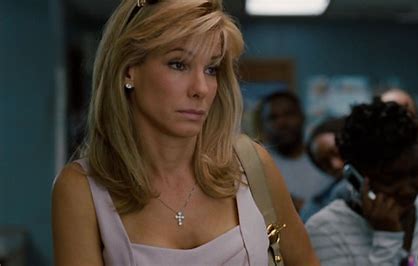


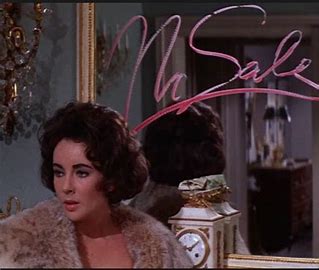





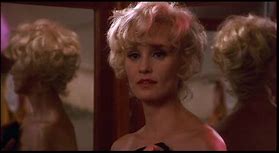



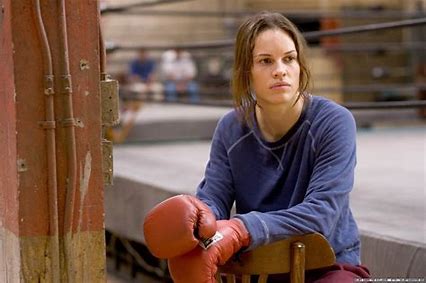
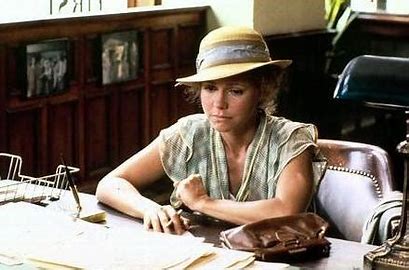
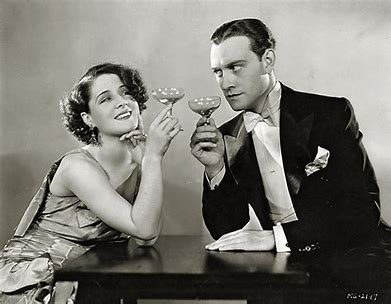
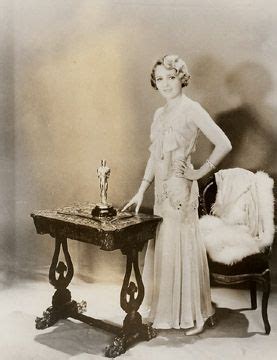




No comments:
Post a Comment